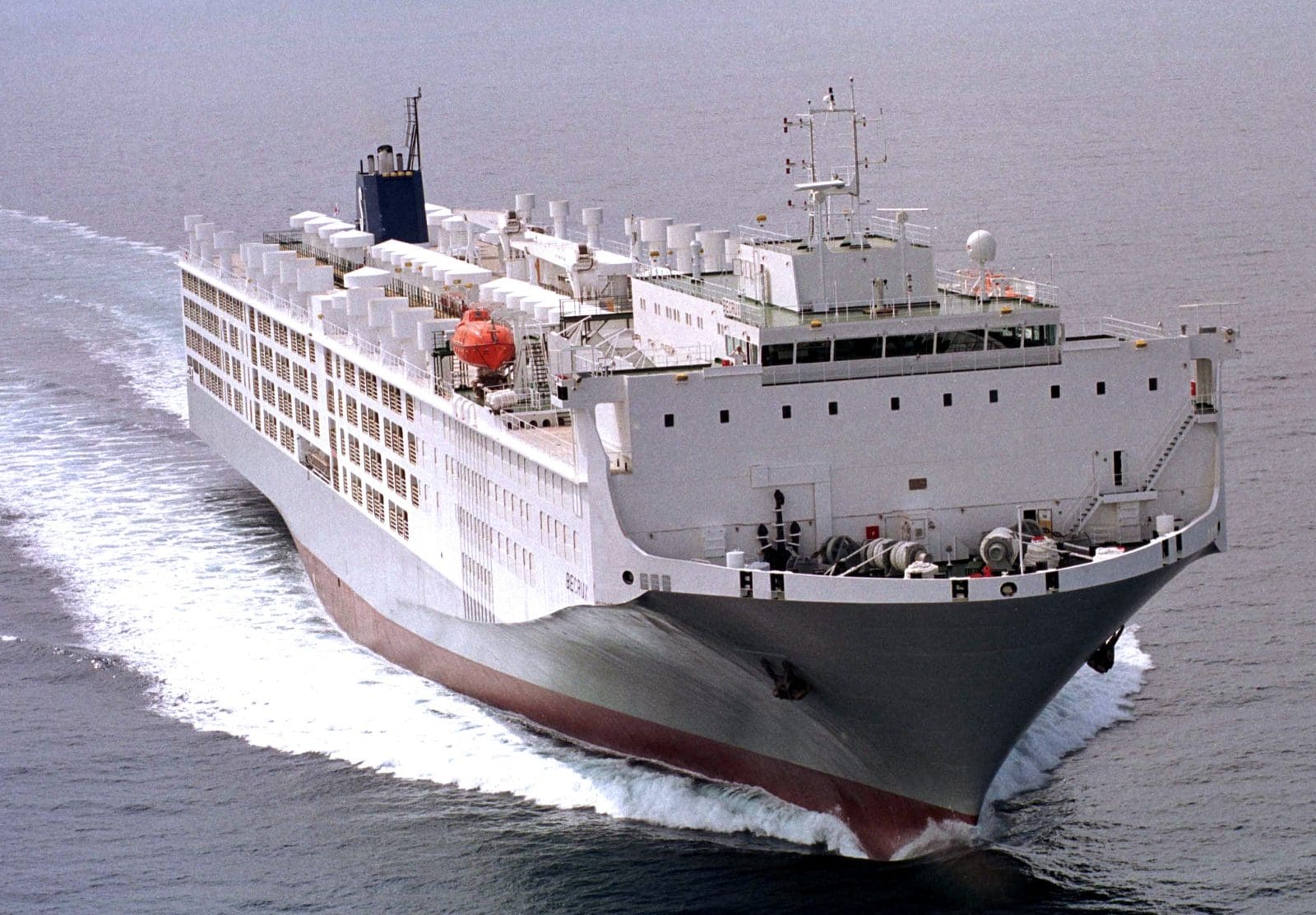
MV Ocean Drover
AUSTRALIA’S last live sheep vessel to depart for the Middle East before a three-month Northern Summer prohibition has been approved and is on its way Kuwait and the United Arab Emirates.
Despite an attempt by Animals Australia and the RSPCA last week to halt the shipment of 56,000 sheep and about 130 cattle on the MV Ocean Drover, exporter Rural Exports and Trading WA received its export permit approval Saturday afternoon.
The May live sheep shipments on the MV Ocean Drover and Al Messilah are regarded as crucial to limiting the Department of Agriculture’s current Northern Summer prohibition to June, July and August, rather than it being extended to a six-month period from May to October.
RETWA general manager Mike Gordon said the Ocean Drover departed Fremantle at about 6.25pm Sunday after receiving its notice of intention and export permit approvals. It is very important for the industry that the Ocean Drover shipment went well, he said.
“We believe that shipments at this time of the year are quite safe and that barring something really strange happening we expect a successful shipment.”
Mr Gordon acknowledged that the battle to restrict any Middle East Northern Summer shipment prohibition to the voluntary industry ban on June-August shipments was not over.
“It is sitting with the regulator and with the Heat Stress Risk Assessment (HSRA) Technical Reference Panel.
“It was important to demonstrate that can still ship in May, although I would like to see the end result before we start crowing too much, but I don’t there to be an issue.”
Animals Australia and the RSPCA regard the Northern Summer as extending from May to October, and the industry is concerned that disallowing May shipments might strengthen the case for a September to October suspension, potentially making the trade unviable.
“It will be difficult for any business to operate for six months a year.
“Your fixed costs are amortised over the 12 month period and although we’ve certainly got some issues with a three-month suspension that is manageable,” Mr Gordon said.
Mr Gordon said RETWA had clients that depended on a reliable supply of sheep.
“If you are going to take six months out of the trading cycle, it is going to make it very difficult for them also.”
He said one of the conditions of the regulator for May shipments was three data loggers per deck, plus three for any ‘hotspots’ to measure air temperature and humidity, allowing wet bulb temperature calculation.
“Our contention is that sheep can be safely carried throughout that time.
“There is an elevated wet bulb (temperature), but with the lighter stocking density, it gives the sheep plenty of room.”
He believes the HSRA panel should consult the veterinarians on board live sheep vessels for their opinions on wet bulb and sheep discomfort.
“Even though they may have a period of discomfort, so long as there is respite, they are OK.”
He hoped the current prohibition would be restricted to three months, allowing Middle East trade for the other nine months.
He said the other May sheep shipment was on the Al Messilah, which had discharged at Kuwait and was in the UAE now.
“I think it could be the lowest, if not the lowest for mortality.”
Ocean Drover shipment to have significant animal welfare consequences
Animals Australia believed that the Ocean Drover shipment due to its date of departure and the associated high risks of heat stress, could not meet legal requirements for an export permit; however, the animal rights body did not take further legal action to stop the Ocean Drover shipment.
Animals Australia legal counsel Shatha Hamade said the organisation believed there were strong legal grounds for the regulator to deny the RETWA export permit.
“The decision to allow this shipment will have significant animal welfare consequences. It is inevitable that these 56,000 sheep will suffer heat stress en route, only then to be stockpiled in Kuwaiti feedlots in extreme temperatures.
“While we were unable to prevent this shipment, Animals Australia will consider options regarding seeking a judicial review of this decision,’ she said.
“It is clear from the legislation governing the export approval process that preventing unnecessary suffering is a key consideration.
“We believe that had this been given appropriate gravitas, this shipment would not have departed.”
Former Minister for Agriculture David Littleproud last year announced a regulatory change which brought forward the opportunity to lodge an injunction against a live export shipment to that point in the process when the regulator approves an exporter’s intent to send a shipment.
“This supports animal welfare, reducing the risk of animals being loaded on a ship only for an injunction to be submitted — where they either need to be unloaded or need to stay on the ship for longer than expected,” a departmental spokesperson said.

HAVE YOUR SAY